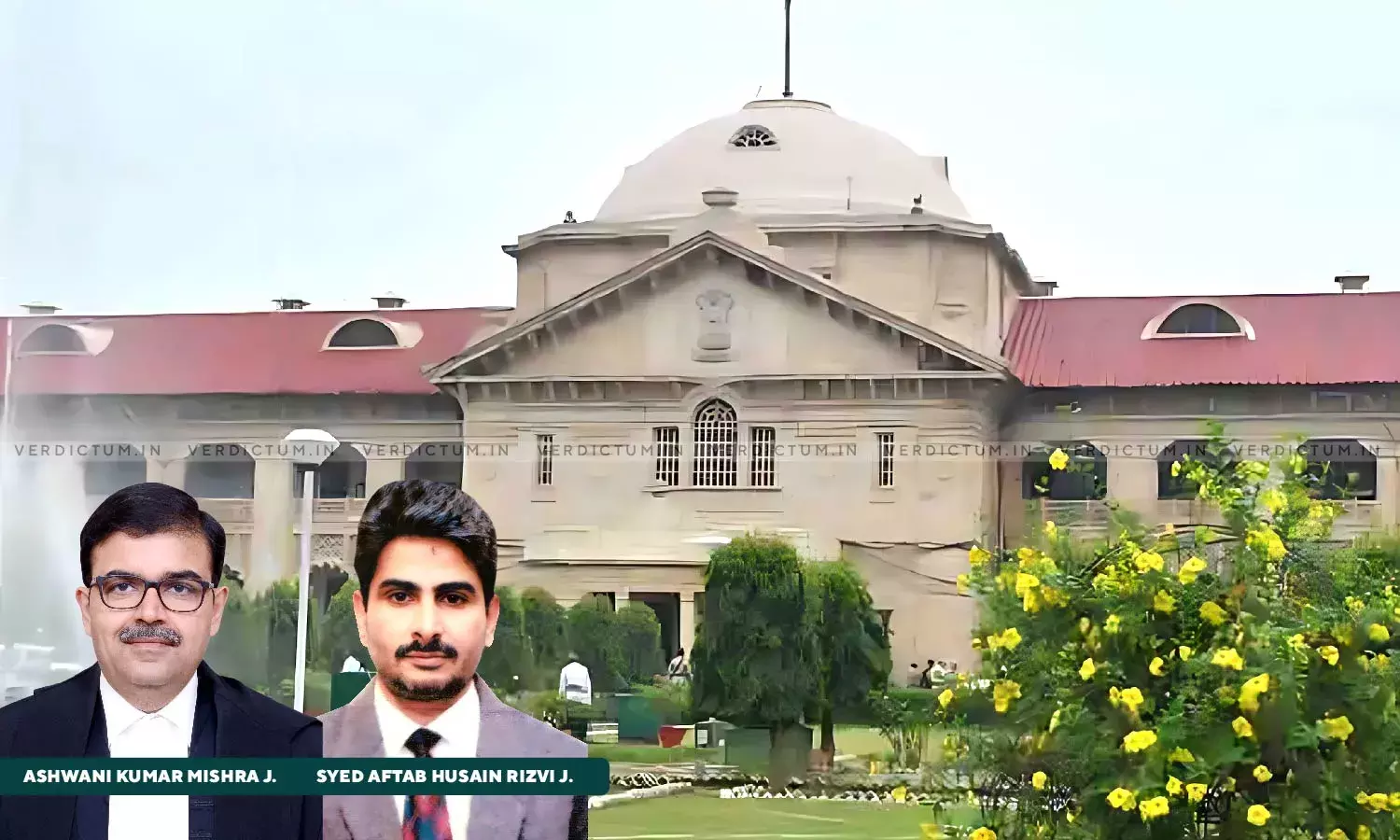Dying Declaration Was Not Reliable: Allahabad HC Acquits Man Convicted For Setting Ablaze Mother-In-Law & Brother-In-Law

The Allahabad High Court has acquitted a man who was convicted for setting ablaze his mother-in-law and brother-in-law on the ground that the dying declaration made by the deceased (brother-in-law) to the Magistrate was not reliable. It has quashed the death sentence awarded to the said man.
The Court was dealing with an appeal preferred by the said man and a reference made by the Additional Sessions Judge with regard to the death sentence awarded to the accused.
A Division Bench of Justice Ashwani Kumar Mishra and Justice Syed Aftab Husain Rizvi held, “The dying declaration made to the Magistrate, therefore, does not appear to us to be entirely reliable inasmuch as the factual assertion made therein with regard to Deep Chand having gone to the room of his mother to see TV and other facts being contradicted by the evidence on record. Deep Chand has otherwise feigned ignorance about the reason for which the accused had poured petrol and set him and his mother ablaze. In the totality of the facts and circumstances, we are therefore not inclined to rely upon the dying declaration so as to record the conviction of the accused appellant.”
The Bench said that the lower court did not subject the testimony of witnesses to a scrutiny accepting the prosecution case on its basis and that the law with regard to evaluation of the dying declaration was also not applied correctly in the facts of the case.
Advocate Rajrshi Gupta was appointed as an Amicus Curiae while Government Advocate Archana Singh represented the State.
In this case, the appellant/accused was alleged to have poured petrol on his mother-in-law and brother-in-law and set them ablaze. The appellant came to the house and enquired about his wife and daughter one afternoon and the family members informed that they did not come to the house. For this reason, the accused started abusing them and kept roaming and then poured petrol setting ablaze the deceased at night.
The deceased persons were sleeping in the dallan (kind of a verandah attached to the house) at the time of the incident. Both were taken for treatment to the hospital where the mother-in-law died and the brother-in-law was in injured condition. The Trial Court after relying upon the dying declaration made by the deceased brother-in-law convicted the appellant and awarded death sentence to him. The appellant was, therefore, before the High Court.
The High Court in view of the facts of the case noted, “We, therefore, disbelieve the prosecution case founded on the premise that the accused wanted to keep his daughter and as the daughter got married elsewhere he committed the barbaric act of killing the deceased. … The prosecution has otherwise not disclosed as to what exactly transpired when the accused went to her-in-law’s house at 4 O’ clock. The substance of conversation has not been narrated by any of the witnesses.”
The Court said that even it accepts the prosecution case that the wife and daughter of the accused were missing and he suspected them to present in the house of the deceased and having not found them there, he felt annoyed, yet such part of the evidence would not lead to an inference that the accused felt so enraged as to have committed the kind of act as has been attributed to him in the second part of the incident.
“The prosecution version that accused was arrested at 6 PM is not believable in view of the consistent case of prosecution witnesses P.W.-1 to P.W.-3, all of whom have testified about arrest of the accused prior to the registration of F.I.R. This Court, therefore, views the prosecution version with some circumspection. … There is, thus, no deficiency in the recording of dying declaration on the procedural aspect. It is otherwise settled that in the event dying declaration is found trustworthy then we can consider at the sole basis for recording conviction of the accused in appropriate manner”, held the Court.
The Court observed that the last answer of the deceased (brother-in-law) in his dying declaration that he had gone to her mother’s room to watch T.V. was contradicted by the weight of evidence on record.
“We view with some suspicion, the statement of Deep Chand inasmuch as it is not clear as to how he knew that the liquid, poured upon him or his mother was petrol. There is not even an iota of evidence on record to show that the deceased were burnt by the use of petrol. It is difficult to conceive that as to how Deep Chand could know about the identity of inflammable substance. It is in that context that we attach some importance to the argument of defence that infact the dying declaration was a result of tutoring inasmuch as P.W.-1 has admitted that he was present when the statement of his brother was being recorded”, added the Court.
The Court further said that there was a material contradiction in the dying declaration recorded by the Magistrate viz-a-viz the statement recorded by the Investigating Officer inasmuch as the Investigating Officer stated that the deceased informed him that from the voice of accused, he could identify him whereas in the dying declaration made to the Magistrate, there was no such disclosure.
Accordingly, the High Court acquitted the appellant, answered the reference, and reversed the finding of the trial court.
Cause Title- Jugal v. State of U.P. (Neutral Citation: 2023:AHC:158497)


